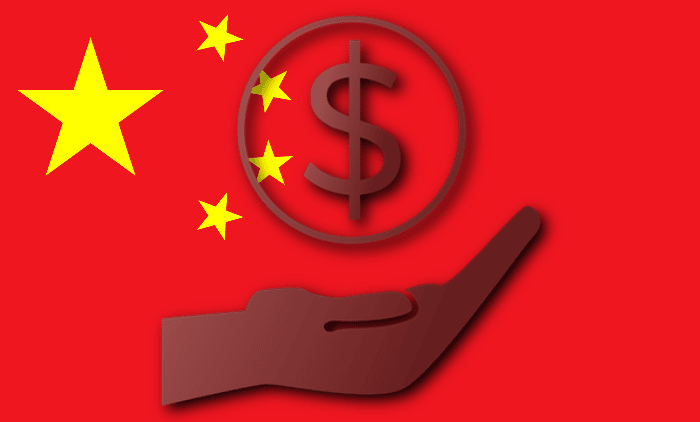Today, RCEP is fully effective for 15 member states!
[ad_1]
On June 2, the “Regional Comprehensive Economic Partnership Agreement” (RCEP) took full effect for 15 member countries, and the world’s largest free trade zone will enter a new stage of full implementation.
On January 1, 2022, RCEP will enter into force for 10 countries including Brunei, Cambodia, Laos, Singapore, Thailand, Vietnam, China, Japan, New Zealand and Australia; it will enter into force for South Korea on February 1; and it will enter into force for Malaysia on March 18. ; effective for Myanmar on May 1. On January 2, 2023, RCEP officially entered into force for Indonesia; on June 2, it entered into force for the Philippines. So far, the 15 member states included in RCEP have all completed the entry into force procedures, and can implement tariff reductions with each other, and the dividends of preferential policies will continue to expand.
Chen Jianwei, an associate professor at the National School of Opening-up at the University of International Business and Economics, said in an interview with a reporter from the Securities Daily that since RCEP has been in effect for more than a year, the level of tariffs among member states has dropped, and the cost of trade in goods has dropped significantly, which has effectively promoted the industrial chain in partner countries. Deep integration of supply chain value chain. For our country, it is not only conducive to the development of export markets, but also conducive to the “going out” of advantageous industries and the global layout, thereby helping to build a new development pattern.
In fact, for more than a year, many enterprises have benefited from the preferential tariffs, simplified customs clearance, and trade and investment facilitation brought about by RCEP.
The certificate of origin is an important certificate for export goods to enjoy tariff reduction or exemption in the importing party according to the trade policy, which is called “paper gold”. According to the latest data from the China Council for the Promotion of International Trade, from January 2022 to April 2023, the national trade promotion system issued more than 220,000 certificates of origin under RCEP, involving an amount of 9.073 billion US dollars. $136 million.
The “Securities Daily” reporter learned from Shenyang Customs that Shenyang Customs is guided by the actual needs of enterprises, formulates preferential plans and targeted assistance measures, and guides enterprises to make good use of the preferential policies of the RCEP agreement. Liaoning Province’s new energy special vehicles, carbon, Special products such as paraffin wax have been successfully “going overseas” to the markets of RCEP member countries. In the first four months of this year, Shenyang Customs issued a total of 414 RCEP certificates of origin, with a visa value of 568 million yuan, a year-on-year increase of 142.94%.
A person in charge of a food foreign trade company in Dalian told the reporter: “According to the RCEP tax rate reduction policy, the tax rate of several commodities involved in the company this year has dropped by an average of 0.8% compared with last year. The preferential tax rate policy has helped us reduce export costs. market share of the exporting country.”
For the RCEP to take effect in the Philippines on June 2, commercial departments and enterprises in various places are ready. For example, on May 26, the China Council for the Promotion of International Trade issued a notice on accepting certificates of origin under the RCEP project whose destination country is the Philippines. On May 31, the Guangdong Branch of the General Administration of Customs held a policy presentation in Jiangmen City. Meng Shengnan, Chief of the General Section of Origin of Jiangmen Customs Customs Department, introduced that after RCEP takes effect for the Philippines, in the field of trade in goods, the Philippines will add zero-tariff treatment to my country’s automobiles and parts, some plastic products, textiles and clothing, air conditioners, washing machines, etc. After a certain transition period, the tariffs on the above-mentioned products will be gradually reduced from 3% to 30% to zero.
Talking about how foreign trade companies can improve their export competitiveness through RCEP, Xie Houqin, a senior investment consultant of Jufeng Investment Consulting, told the reporter of “Securities Daily”. The regional industrial chain supply chain forms a virtuous circle of trade. Secondly, according to the characteristics of the enterprise’s export market, dynamically adjust product development and management, accelerate technological innovation, and enhance product competitiveness.
In Chen Jianwei’s view, after RCEP takes full effect, enterprises in industries such as mechanical equipment, electronic equipment, chemicals, and steel products will further benefit. All localities and departments can help enterprises make better use of RCEP by providing RCEP-related training and information services, improving the level of trade legal services, promoting intergovernmental trade policy cooperation, and promoting RCEP’s digital platform.
[ad_2]
Source link



